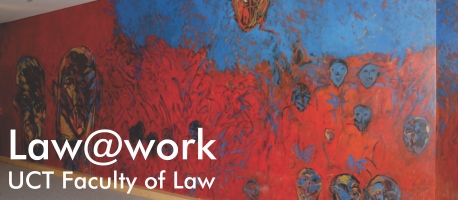
This course provides a platform for learning the plural legal frameworks for the conduct of business in different parts of the African continent - that is, within and between regions and countries.
These legal frameworks are shaped by various legal traditions such as international and regional law, common law, civil law, and religious and customary law principles. The course has been designed to assist interested parties in navigating their investment interests in Africa and equipping them with the legal framework for interacting with stakeholders.
Join us for an six-hour course, held over three days.
When and where?
6 to 8 September 2023, 9:00 to 11:00 SAST
This course will be held remotely, most likely on Zoom - exact details will be sent to registered participants a few days before the course.
Course outcomes
It is expected that course participants will:
- Know what the challenges are in doing business in Africa.
- Gain knowledge of opportunities in formal, informal, and digital markets.
- Develop a legal toolkit for African business destinations.
- Develop an Africa focus skill set for professional development.
- Have access to continent-wide credible and verified resource providers.
Course outline
The course will cover the following:
Day 1
- Due diligence and market entry.
- Diverse business contexts and cultures.
- Company registration.
- Access to services like land and buildings (property acquisition and registration).
- Investment protection and promotion.
Day 2
- Cross-border trade in Africa.
- Introduction to legal and judicial integration of business laws and their imperatives (OHADA, ERSUMA and Common Court of Justice and Arbitration).
Day 3
- The future of business in Africa and external commercial relations.
- The AfCFTA and Investment in Africa (dispute settlement and digital trade).
- China-Africa Investments
Who will benefit from this course?
The course will apply to corporate attorneys and legal consultants interested in the legal aspects of doing business in Africa, among others.
Presenters
Victor Amadi is currently a Post-Doctoral Research Fellow at the Centre for Comparative Law in Africa (CCLA), University of Cape Town (UCT). He is also an Olu Akinkugbe Business Law in Africa Fellow and a Research Fellow at the New South Institute, Johannesburg, South Africa. He holds a Bachelor of Laws (LLB), LLM, and LLD degrees in Mercantile and Labour Law from the University of the Western Cape (UWC). His research focuses on trade and comparative regional integration and development in Africa. He is involved in teaching courses on Law and Regional Integration in Africa and Comparative Business Law in Africa to undergraduate and postgraduate students at UCT while providing extensive research advice in these areas. He serves as the managing editor of the Journal of Comparative Law in Africa. He is the author of the monograph “Trade, Migration and Law: Free Movement of People in the Southern African Development Community” (Routledge 2022).
Tebogo Lefifi holds an LLM in Chinese business law from Hong Kong Open University and is a doctoral candidate in the Centre for Comparative Law in Africa (CCLA) at UCT. She holds a BCom from the University of KwaZulu-Natal and completed postgraduate courses in finance and economics. She spent a decade studying Chinese business, language and law in China. During this time, she worked with universities, corporations and government departments advising on research and regulatory environment in China. Tebogo has become a thought leader on Africa-China relations and featured in key Chinese and African media.
How much?
R2,100 per person
How to sign up
Complete and submit the registration form. You will then be given the payment information. Please note that registrations will not be accepted until payment has been made.
A few days before the course starts you will be given access to the e-learning module, as well as the Zoom link for the workshop sessions.
Registrations close three days before the course starts.
Download the brochure.

